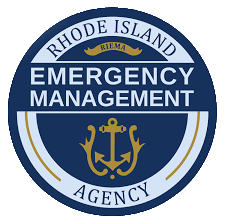Floods
Floods happen when excessive amounts of water cannot be contained or absorbed into the ground. Some floods develop slowly, while flash floods can happen in a few minutes without any visible warnings of rain.
Floods are one of the most common hazards in the country. In Rhode Island, we are more likely to experience a flood during the spring and summer seasons.
Types of Flooding
There are 5 types of flooding that can affect Rhode Island:
Riverine Flooding
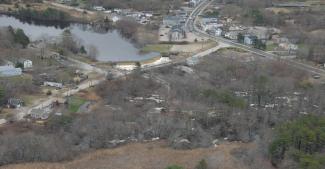
- Occurs when a river reaches its flood stage, causing water to rise and spill over its banks.
- Usually occurs due to heavy rainfall lasting for an extended period of time.
Flash Flooding
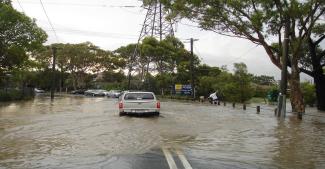
- Result of heavy localized rainfall such as that from slow moving intense thunderstorms.
- Often results from small creeks and streams overflowing during heavy rainfall.
Coastal Flooding
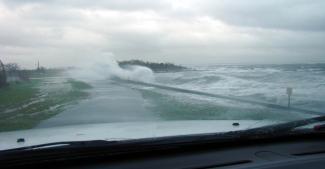
- The flooding of normally dry, low-lying coastal land, primarily caused by severe weather events along the coast and adjoining rivers.
Shallow Flooding
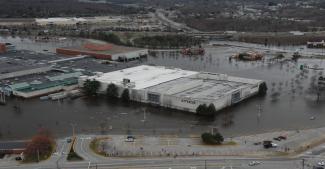
- Occurs in flat areas with inadequate or no defined channels.
- Shallow flooding types:
- Sheet flow: When water, usually storm runoff, flows in a thin layer over the ground surface.
- Ponding: When flowing water is held back or dammed up, forming a small lake/pond.
- Urban drainage: Flooding caused due to lack of drainage in an urban area.
Tidal Flooding
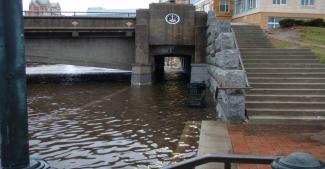
- Many contributors to tidal flooding:
- Extreme high tides
- Heavy rains
- Coastal development
- For more information on tidal flooding, check out NOAA's informational short animated video on tidal flooding impacts.
Damage stemming from flooding can be very expensive and in more severe instances, life threatening. Since floods can occur from a variety of reasons and during any time of the year, it is very important to prepare yourself and your family before flooding occurs. Download our Flood Preparedness Guide for preparedness tips and information on what to do before, during, and after a flood.
